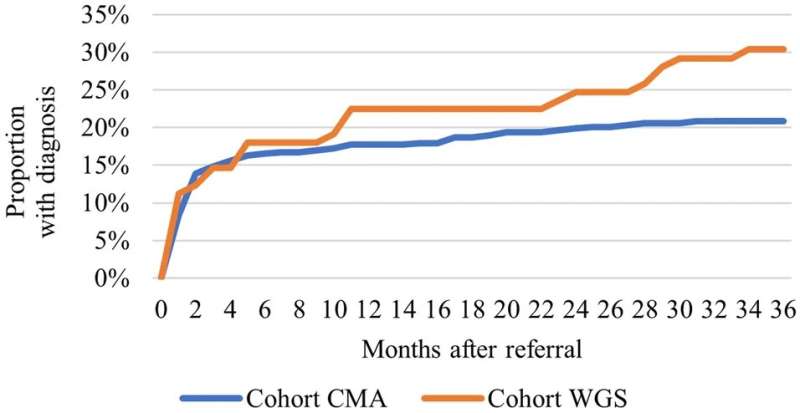Home » Health News »
Study finds it’s cost-effective to diagnose intellectual disabilities with whole genome sequencing

Researchers at Karolinska Institutet and Karolinska University Hospital have together with health economists at Linköping University analyzed costs for various methods to diagnose genetic causes of intellectual disability. The study, published in Scientific Reports, shows that the costs when using whole genome sequencing as a first-line diagnostic test were lower compared to chromosomal microarray analysis.
An examination of the entire gene set, so-called whole genome sequencing, WGS, gives a better answer than previous methods when intellectual disabilities are investigated, and new findings shows that the method is also more cost-effective.
In this study, a health economic evaluation was made of 89 individuals with intellectual disability, ID, who underwent early diagnostics with whole genome sequencing at the Clinical Genetics Department at Karolinska University Hospital. After two years, 9.4% lower health care costs per individual were observed compared to 418 individuals who underwent traditional genetic investigation using micro-array technology, CMA.
“The study shows that WGS as a first-line diagnostic test for individuals with ID is associated with lower costs and a higher diagnostic yield compared with CMA,” says Anna Lindstrand, Senior Physician and Professor of Clinical Genetics at the Research Group Rare Diseases, Department of Molecular Medicine and Surgery.
This indicates that whole genome sequencing should be used as the dominant strategy when investigating these individuals.
More information:
Hannes Runheim et al, The cost-effectiveness of whole genome sequencing in neurodevelopmental disorders, Scientific Reports (2023). DOI: 10.1038/s41598-023-33787-8
Journal information:
Scientific Reports
Source: Read Full Article



